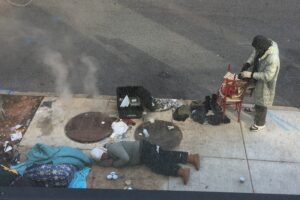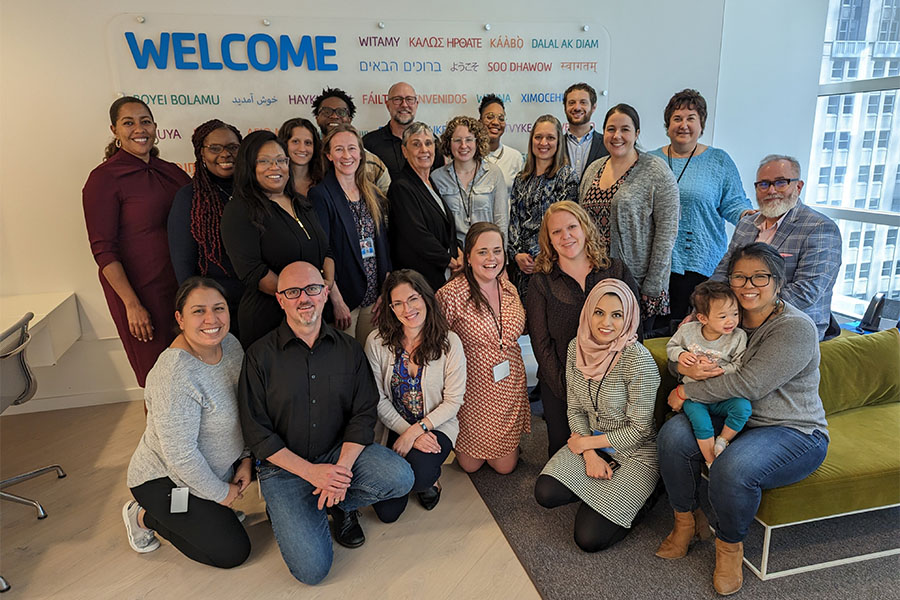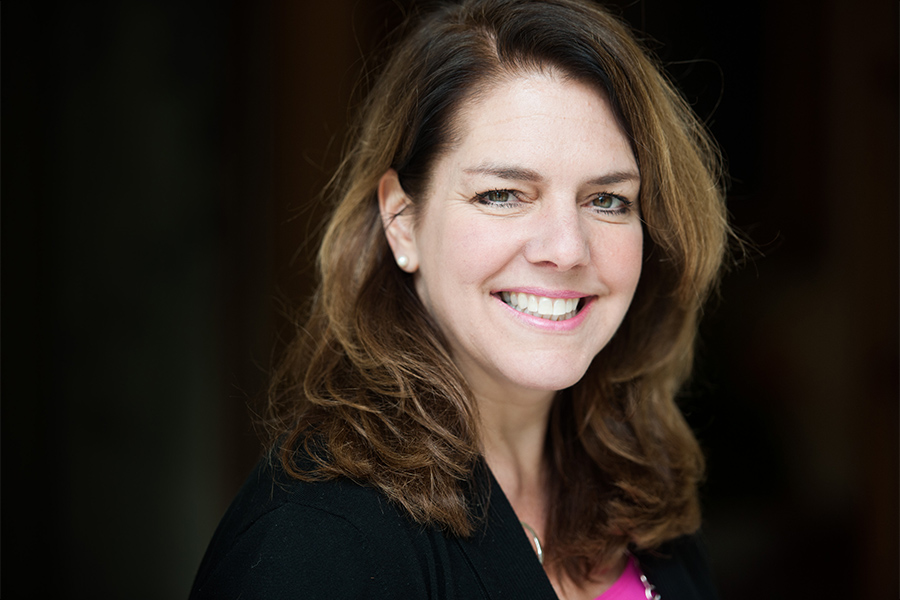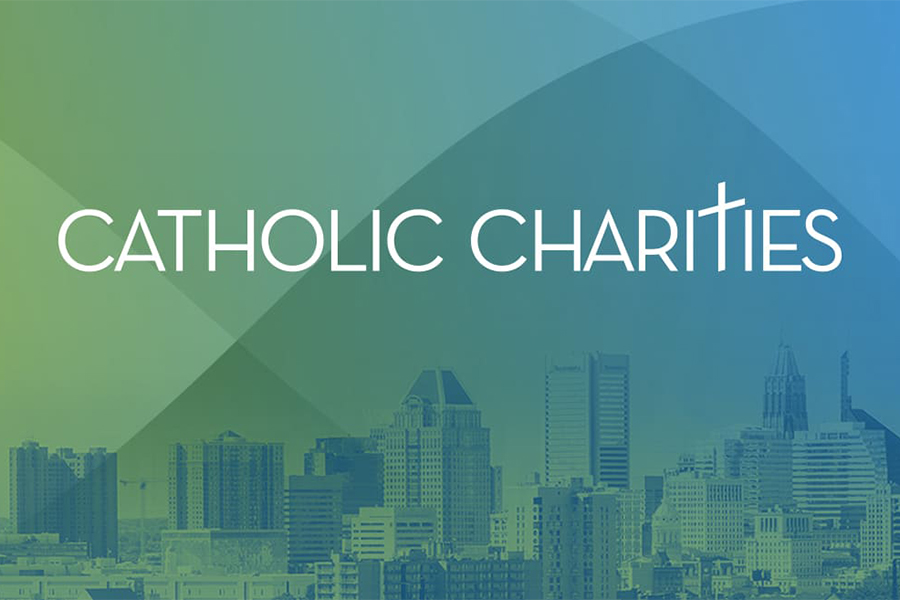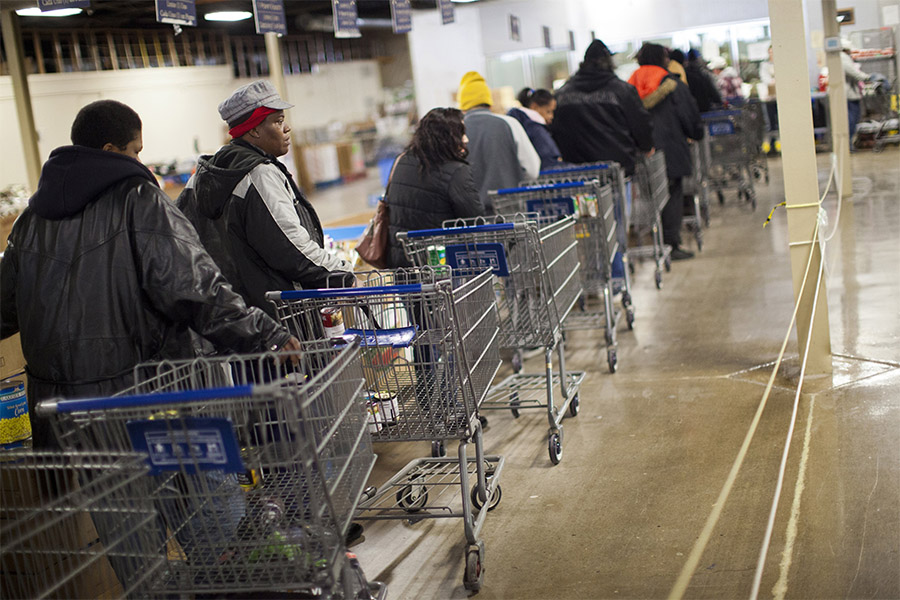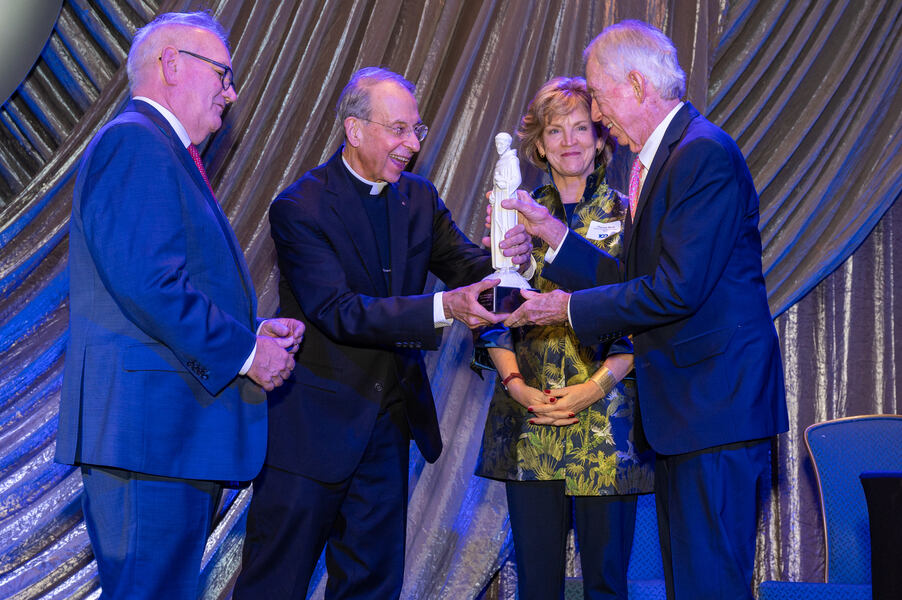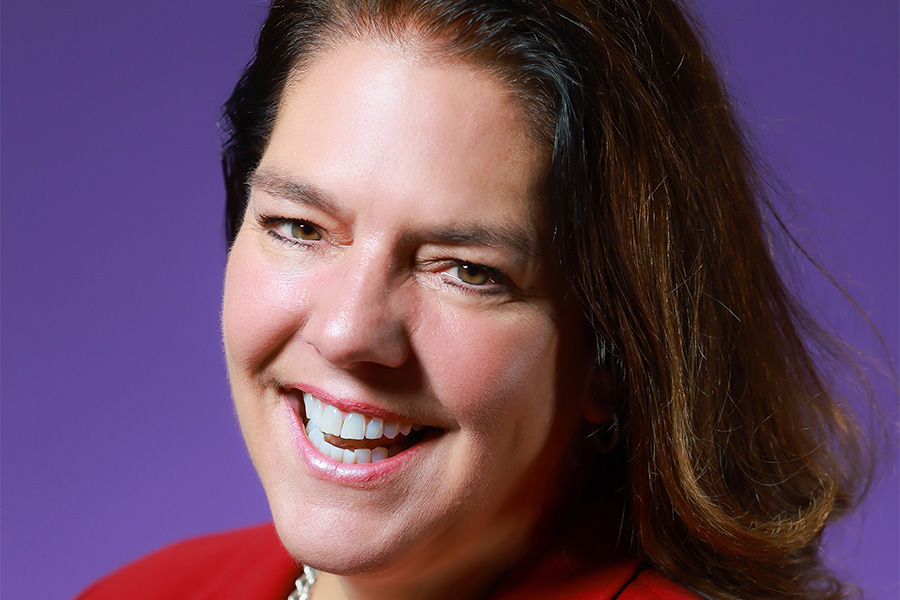As it has done throughout 100 years of assisting Marylanders in need, Catholic Charities of Baltimore provided a helping hand earlier this week, when Our Daily Bread Employment Center partnered with the Baltimore City Mayor’s Office to lead an effort to count every poverty-stricken person experiencing previously undocumented homelessness.
On the evenings of Sunday and Monday, Jan. 22 and 23, more than 100 volunteers trained by Catholic Charities fanned out across Baltimore City to conduct the 2023 Point-In-Time count.
The PIT count, led by the Baltimore Mayor’s Office of Homeless Services in conjunction with Baltimore’s Continuum of Care, is conducted throughout the state each year ideally around the third week in January, when some of the coldest nights of winter typically occur.
January is observed as National Poverty in America Awareness Month. It is just another month during which Catholic Charities focuses on helping those in need achieve independence.
The mission of Catholic Charities includes supporting children and families, empowering careers, and helping people to heal from trauma and addiction and to age with dignity.
Catholic Charities, which has participated in numerous counts in some capacity, has long assisted Baltimore’s homeless. The organization is Maryland’s largest private provider of human services, with more than 80 programs in 200 locations.
The PIT count, the detailed results of which will be tabulated throughout the state and released to the public in approximately two months, is mandated by the U.S. Department of Housing and Urban Development at least every two years.
“Our count is meant to be a snapshot of the homeless population in the Baltimore area,” said Lee Martin, program director of Our Daily Bread Employment Center, which trained volunteers and functioned as headquarters for the Baltimore City count. “The data collected helps every jurisdiction understand how many homeless individuals are in their communities. That helps to develop services for (those in need), with funding tied to the federal government.”
Martin added that the count does not include homeless individuals who are staying in shelters or in other transitional programs already funded by the city.
Volunteers conducted surveys with the homeless, inquiring, for example, about where they were staying and how long they had been homeless. These individuals could be sleeping in a car or outside or in an encampment or abandoned building.
Martin co-chairs the committee that will review and release the PIT count’s findings to the public.
“We’re trying to help people achieve independence by offering mental health assistance,” Martin said. “Part of the survey gives them a chance to self-admit that they have mental health or substance abuse problems.”
Poverty can affect those of all ages, races and religions. According to the U.S. Census Bureau, the official poverty rate in 2021 stood at 11.6 percent with 37.9 Americans living in poverty. More citizens sought government resources or community assistance in 2022, due to the effects of a historic surge in inflation that hit the homes of millions of Americans.
“Achieving independence and fighting against poverty on a daily basis is a challenge so many people silently face,” said Karen Eaddy, program director for My Sister’s Place Women’s Center, which operates in downtown Baltimore and helps clients find stable housing and work their way out of poverty. “We look to let them know they are not alone and we can assist them on their journey to independence.”
Read more on Catholic Charities
Copyright © 2023 Catholic Review Media
